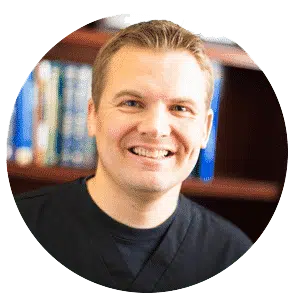REASONS FOR A COLONOSCOPY
A colonoscopy is used to examine the large intestine for a variety of reasons, including:
- Screen for Colon Cancer – A colonoscopy is considered to be the “gold standard” screening exam for colon cancer. This is because it is the only method that allows for the identification and removal of precancerous polyps in the same setting.
- Diagnose Symptoms – A colonoscopy can help identify the cause of gastrointestinal symptoms like abdominal pain, rectal bleeding, diarrhea, or changes in bowel habits. It can also help diagnose inflammatory, mechanical, and anatomic diseases like Crohn’s disease, ulcerative colitis, and diverticulitis.
COLORECTAL SCREENING GUIDELINES
The best way to decrease the incidence of colon cancer is to make sure people follow established guidelines for colon cancer screening.
The American Cancer Society recommends that average-risk individuals (those without a family history of colon cancer or colon polyps) have their first colon cancer screening (for preventative purposes) at age 45. However, you may need to be tested earlier than 45, or more often than other people, if you have:
- Inflammatory bowel disease such as Crohn’s disease or ulcerative colitis.
- A personal or family history of colorectal cancer or colorectal polyps.
- A genetic syndrome such as familial adenomatous polyposis (FAP) or hereditary non-polyposis colorectal cancer (Lynch syndrome)
WHAT TO EXPECT IN A COLONOSCOPY PROCEDURE
A colonoscopy is a procedure performed by your Plano, TX gastroenterologist to directly visualize the lining of the colon and rectum using a flexible scope with a camera and a light on the end of it. During the procedure the patient is sedated and is therefore painless. The procedure takes only 20-30 minutes to perform.
Dr. Eidem’s team of trained nurses and technicians ensure the patients’ privacy is of upmost importance throughout the procedure. As a gastroenterologist in Plano, TX, Dr. Eidem has a lot of patients that are concerned about their privacy, so he felt it was important to note that most of your body is completely covered during the procedure and the staff is focused on the screen helping the gastroenterologist look for polyps.
HOW MUCH DOES A COLONOSCOPY COST?
- Like many other medical procedures, the procedure cost is determined based upon your insurance. Unfortunately, due to the numerous insurance plans and variances within those plans, we cannot display a pricing table. Dr. Eidem recommends discussing with your insurance provider or calling his office at 972-867-0019 to find out the costs related to colon cancer screening. We’re very proud that our surgery center has the lowest facility fees in the DFW area! Offering expert health care while maintaining competitive pricing for our patients is important to us.
- View Dr. Eidem’s Accepted Insurance Providers
- Learn more about Open Colonoscopy – save time and money!
Update: The U.S. Department of Health and Human Services (HHS) announced in May 2015 that anesthesia will be covered by insurance for your first colonoscopy as part of preventative colon cancer screening if deemed necessary by your doctor. This is significant since it means that this will not be an additional expense to the patient.
HOW DO YOU PREPARE FOR A COLONOSCOPY?
The large intestine must be emptied of stool in order for the colonic mucosa to be visualized. To accomplish this, patients need to be on a clear liquid diet for the entire day prior to the procedure and specifically follow a laxative regimen that Dr. Matthew Eidem will prescribe. I’ve created this video to help explain the importance of doing a good job with the prep and provide a few tips on how to make the colonoscopy prep a little easier.
Colonoscopy Prep
WHAT TO EXPECT AFTER A COLONOSCOPY?
- Following the procedure and during recovery from sedation, patients generally feel well but they may feel drowsy and their reflexes can be affected. For this reason, patients are not permitted to drive home after the procedure and will need someone to drive them
- Patients will generally leave the facility approximately 30 minutes after their procedure and can eat after the procedure has been completed. We generally recommend that patients eat a bland and non-greasy meal as they recover from sedation
- Patients should not plan to go back to work, drive, operate machinery, or sign any important documents for the remainder of the day.

